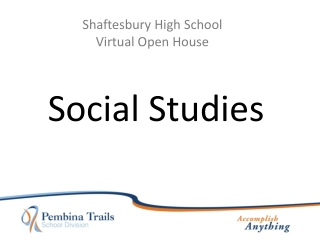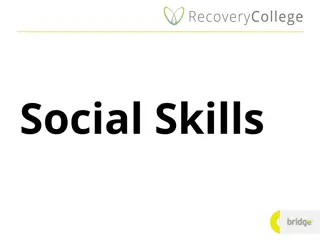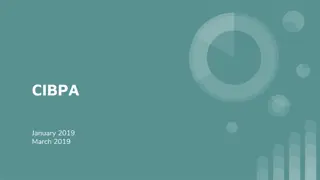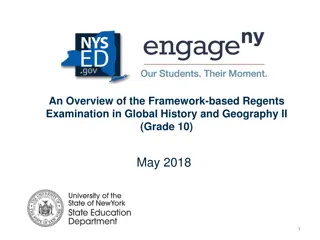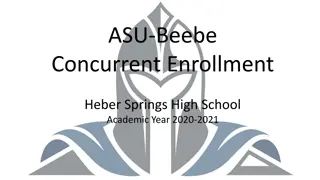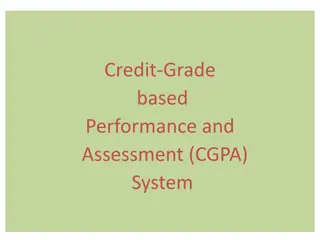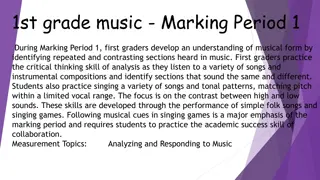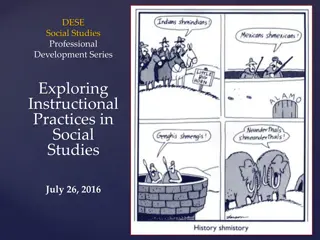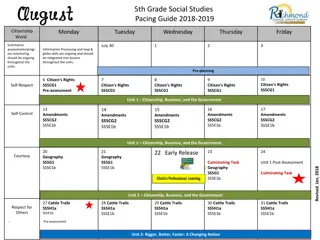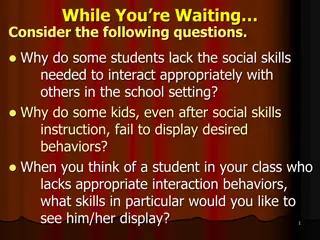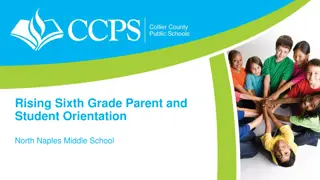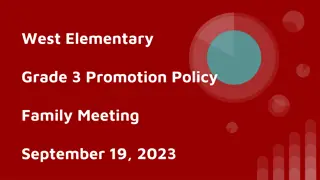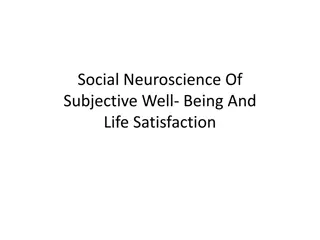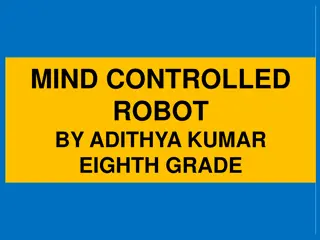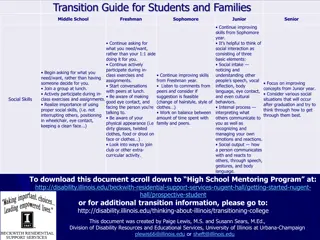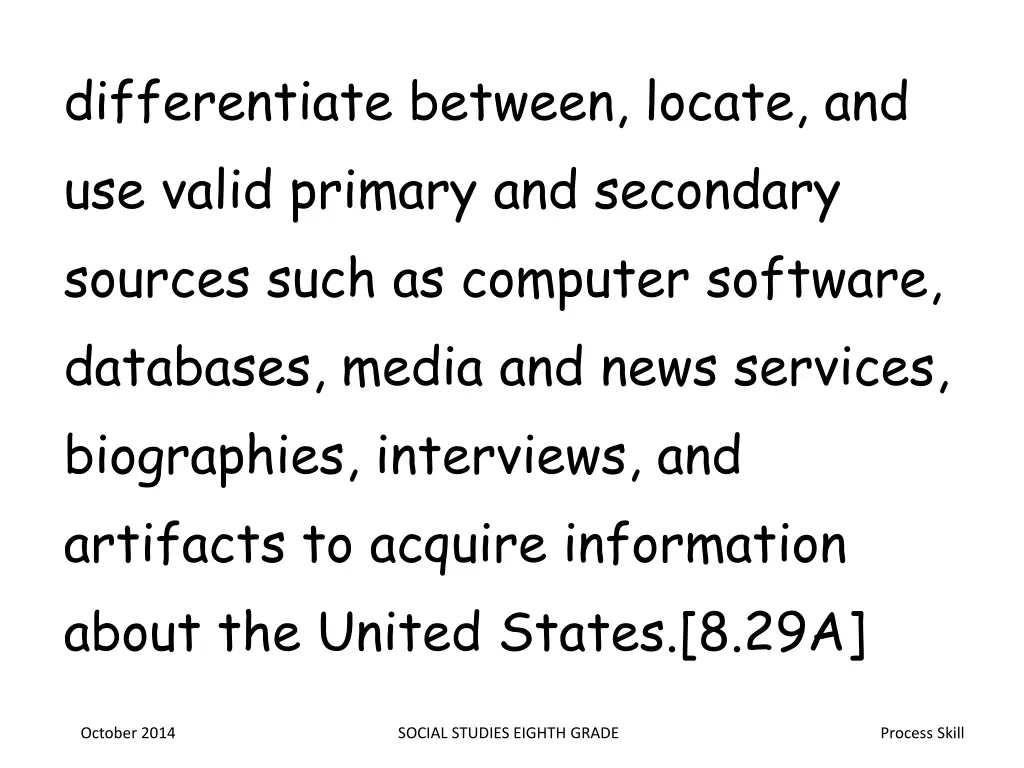
Mastering Information Skills: Primary and Secondary Sources in Social Studies
Learn how to differentiate, locate, and use valid primary and secondary sources including computer software, databases, media, biographies, interviews, and more to gather information about the United States. Enhance your ability to analyze, organize, interpret, identify bias, evaluate validity, and support viewpoints on social studies issues. Develop skills in sequencing, categorizing, comparing, and drawing inferences to enhance your understanding of historical events and contexts.
Download Presentation

Please find below an Image/Link to download the presentation.
The content on the website is provided AS IS for your information and personal use only. It may not be sold, licensed, or shared on other websites without obtaining consent from the author. If you encounter any issues during the download, it is possible that the publisher has removed the file from their server.
You are allowed to download the files provided on this website for personal or commercial use, subject to the condition that they are used lawfully. All files are the property of their respective owners.
The content on the website is provided AS IS for your information and personal use only. It may not be sold, licensed, or shared on other websites without obtaining consent from the author.
E N D
Presentation Transcript
differentiate between, locate, and use valid primary and secondary sources such as computer software, databases, media and news services, biographies, interviews, and artifacts to acquire information about the United States.[8.29A] October 2014 SOCIAL STUDIES EIGHTH GRADE Process Skill
analyze information by sequencing, categorizing, identifying cause-and- effect relationships, comparing, contrasting, finding the main idea, summarizing, making generalizations and predictions, and drawing inferences and conclusions.[8.29B] October 2014 SOCIAL STUDIES EIGHTH GRADE Process Skill
organize and interpret information from outlines, reports, databases, and visuals, including graphs, charts, timelines, and maps.[8.29C] October 2014 SOCIAL STUDIES EIGHTH GRADE Process Skill
identify points of view from the historical context surrounding an event and the frame of reference which influenced the participants.[8.29D] October 2014 SOCIAL STUDIES EIGHTH GRADE Process Skill
support a point of view on a social studies issue or event.[8.29E] October 2014 SOCIAL STUDIES EIGHTH GRADE Process Skill
identify bias in written, oral, and visual material.[8.29F] October 2014 SOCIAL STUDIES EIGHTH GRADE Process Skill
evaluate the validity of a source based on language, corroboration with other sources, and information about the author.[8.29G] October 2014 SOCIAL STUDIES EIGHTH GRADE Process Skill
use appropriate mathematical skills to interpret social studies information such as maps and graphs.[8.29H] October 2014 SOCIAL STUDIES EIGHTH GRADE Process Skill
create thematic maps, graphs, charts, models, and databases representing various aspects of the United States.[8.29I] October 2014 SOCIAL STUDIES EIGHTH GRADE Process Skill
pose and answer questions about geographic distributions and patterns shown on maps, graphs, charts, models, and databases.[8.29J] October 2014 SOCIAL STUDIES EIGHTH GRADE Process Skill
use social studies terminology correctly.[8.30A] October 2014 SOCIAL STUDIES EIGHTH GRADE Process Skill
use standard grammar, spelling, sentence structure, punctuation, and proper citation of sources.[8.30B] October 2014 SOCIAL STUDIES EIGHTH GRADE Process Skill
transfer information from one medium to another, including written to visual and statistical to written or visual, using computer software as appropriate.[8.30C] October 2014 SOCIAL STUDIES EIGHTH GRADE Process Skill
create written, oral, and visual presentations of social studies information.[8.30D] October 2014 SOCIAL STUDIES EIGHTH GRADE Process Skill
use a problem-solving process to identify a problem, gather information, list and consider options, consider advantages and disadvantages, choose and implement a solution, and evaluate the effectiveness of the solution.[8.31A] October 2014 SOCIAL STUDIES EIGHTH GRADE Process Skill
use a decision-making process to identify a situation that requires a decision, gather information, identify options, predict consequences, and take action to implement a decision.[8.31B] October 2014 SOCIAL STUDIES EIGHTH GRADE Process Skill

